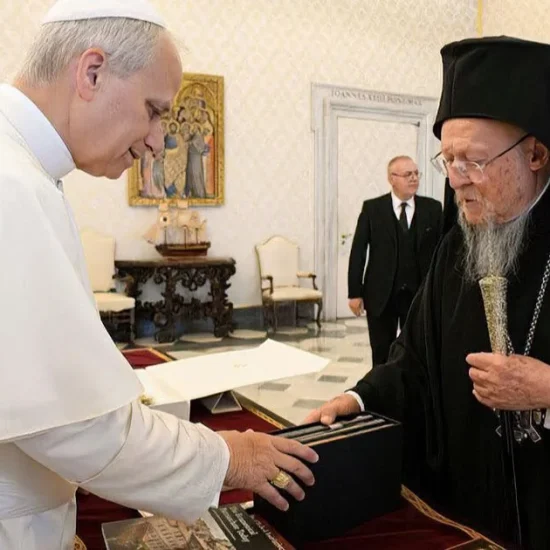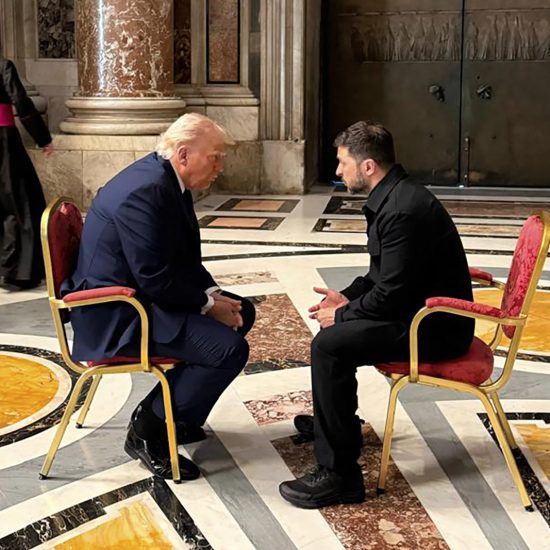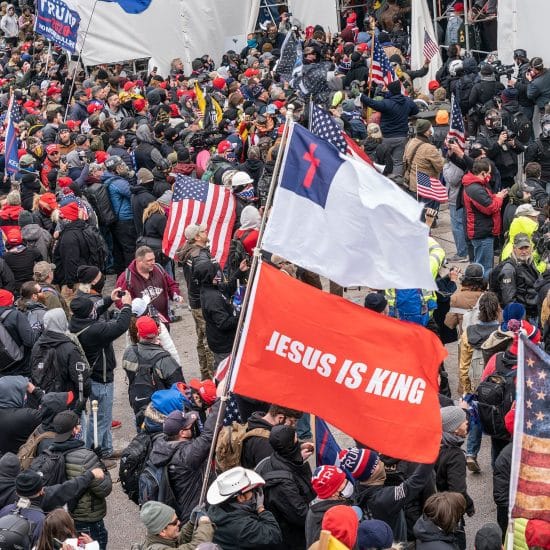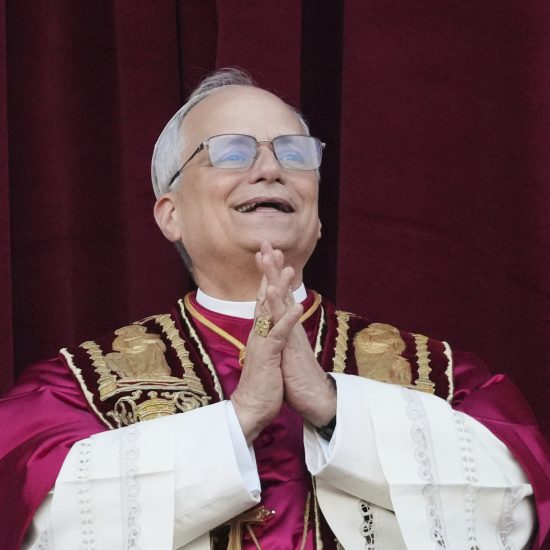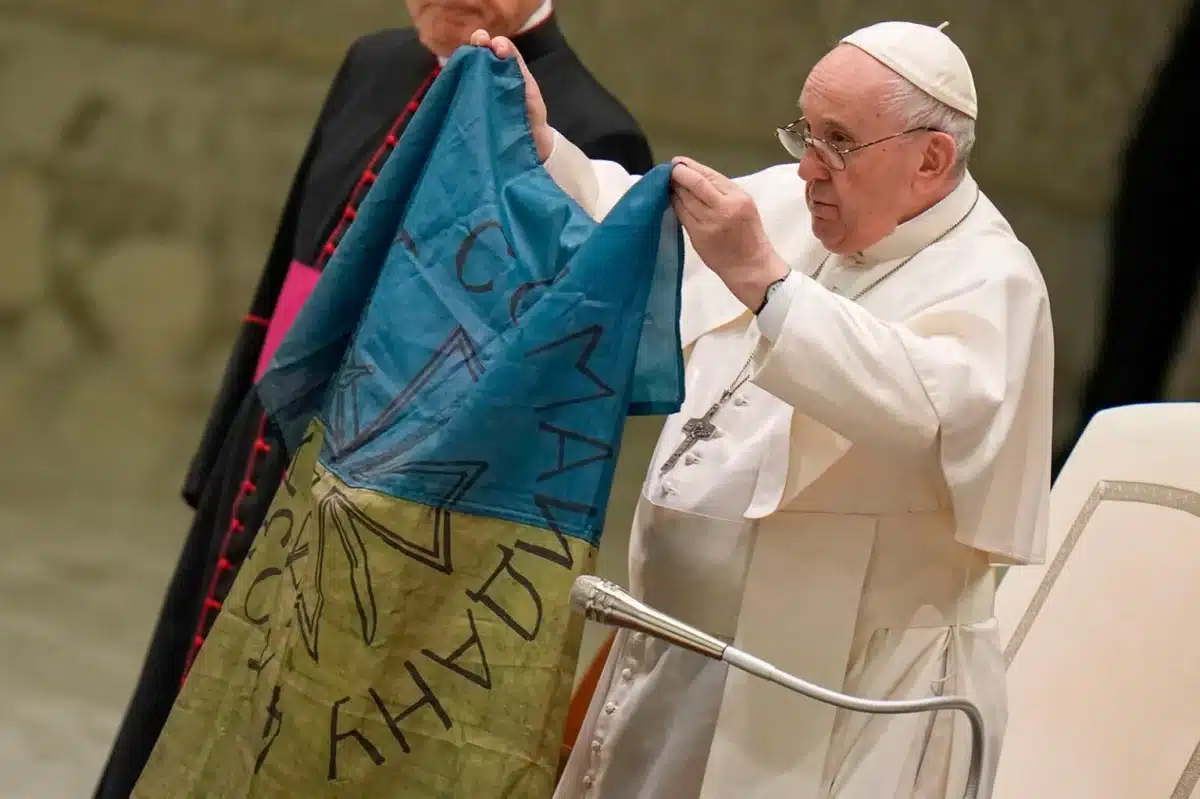
VATICAN CITY (RNS) — Pope Francis’ efforts to keep dialogue open with Russia to achieve peace have frustrated the credibility of the Greek Catholic Church in Ukraine, where approval ratings for the pontiff are at a historical low, local church representatives said on Thursday (Sept. 14).
“Before the Russian invasion of Ukraine, the Holy Father was the most respected religious representative in Ukraine,” said Major Archbishop Sviatoslav Shevchuk, the head of the Greek Catholic Church in Ukraine, during a news conference on Thursday.
“Toward the end of last year his popularity plummeted to very low approval numbers. This is a great problem for the church in Ukraine,” Shevchuk added.
Forty-five representatives of the Greek Catholic Church in Ukraine met for a summit in Rome Sept. 3-13. Participants celebrated a Mass at St. Peter’s Basilica on Sunday attended by more than 3,000 people from the Ukrainian diaspora. The summit was intended to underline the communion that ties the church in Ukraine to Rome and the pope.
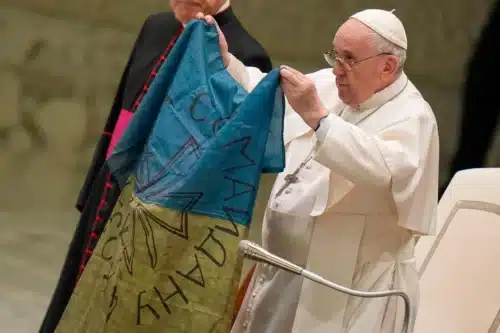
Pope Francis shows a flag that was brought to him from Bucha, Ukraine, during his weekly general audience in the Paul VI Hall, at the Vatican, April 6, 2022. (AP Photo/Alessandra Tarantino)
Attendees also met with Vatican representatives and Pope Francis. During a two-hour meeting with the pope, the Ukrainian bishops were able to voice their concerns directly to Francis.
Pope Francis and the Vatican have opted for a diplomatic approach, attempting to foster open dialogue with Ukraine and Russia, and have avoided demonizing Russia and its leader, Vladimir Putin. On some occasions, the pope’s words seemed to defend the Kremlin, by praising Russian history or suggesting NATO expansion justified the invasion of Ukraine.
The pope addressed these concerns during his meeting with Ukrainian religious leaders at the Vatican. “Doubting whose side the pope is on is a painful reality for the Ukrainian people,” Francis said, according to an official statement. “I wish to assure you of my solidarity toward you and of my constant closeness and prayer. I am by your side and at the side of all the Ukrainian people.”
At the news conference, Shevchuk said the pope’s words were “a consoling message.” However, Sheychuk acknowledged that it will be a tough message for the Ukrainian people to accept and a challenge for Catholic leaders to communicate, given the Vatican’s overtures toward Russia.
“We are prepared to communicate the true intentions of the Holy Father and to be the interpreters of his fatherly concern for our people,” he added.
Pope Francis appointed a peace envoy, Cardinal Matteo Zuppi, to mediate negotiations between the parties involved in the conflict. Zuppi has already met with Ukrainian and Russian leaders and he has traveled to the United States for a private meeting with President Joe Biden. On Wednesday, the cardinal also traveled to Beijing to discuss peace efforts.
After meeting with Zuppi, Ukrainian President Volodymyr Zelenskyy said in a statement that while the Vatican’s intentions are appreciated, especially regarding charitable efforts, its mediation is not needed. In an interview published last weekend, top Ukrainian official Mykhailo Podolyak rejected any mediation offered by the Vatican and called Pope Francis a “Russophile.”
Shevchuk said the statement was a “delicate misunderstanding” and stressed the Ukrainian government is still open to collaborating with the Holy See in promoting peace and helping the local populations.
Regarding Zuppi’s mission, the archbishop said he handed the cardinal all the information on Russian war crimes. “He brought to Moscow everything we handed to him,” he said, adding that the current visit to China is “a sign of hope.”
It remains unclear whether the Vatican and Pope Francis’ vision for peace is compatible with the Ukrainians’ idea of a just peace. Answering questions by reporters, Shevchuk said that “the word has seen its meaning change” over recent years. “Based on what we hear from Cardinal Zuppi, a just peace means a peace that is beholden to certain moral values. Certain principles of international law,” he said.
Ukraine can agree with the Vatican’s vision for peace only “if it’s just and secure,” said Archbishop Borys Gudziak, the Greek Catholic Metropolitan bishop of Philadelphia, during the news conference.
Countries that have experienced Soviet dominion “understand what it means to be under the yoke of an empire and why imperialism must be stopped,” Gudziak added. Only once the aggressor is stopped can there be dialogue and peace, he said.


